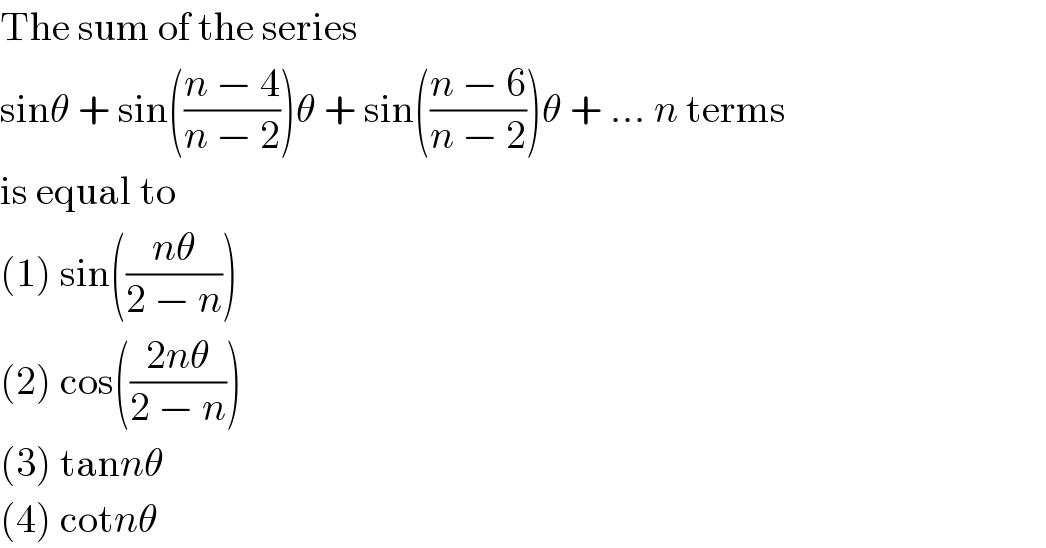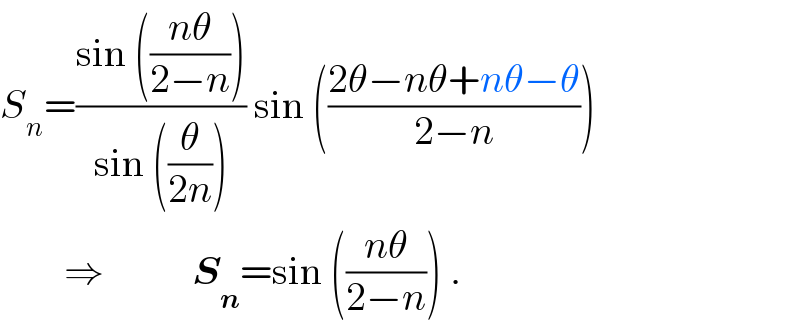
Question and Answers Forum
Question Number 13654 by Tinkutara last updated on 22/May/17

Answered by ajfour last updated on 22/May/17
![T_r =sin (((n−2r)/(n−2)))θ T_(n−1) =sin (((n−2(n−1))/(n−2)))θ=sin (((2−n)/(n−2)))θ T_(n−2) =sin (((n−2(n−2))/(n−2)))θ=sin (((4−n)/(n−2)))θ ..... ..... ..... ..... ...... S = sin (((n−2)/(n−2)))θ+sin (((2−n)/(n−2)))θ +sin (((n−4)/(n−2)))θ+sin (((4−n)/(n−2)))θ +sin (((n−6)/(n−2)))θ+sin (((6−n)/(n−2)))θ + .... + ....... + [+sin (((−n)/(n−2)))θ] excepting the last term, rest all sum to zero. So sum of series = T_n =sin (((nθ)/(2−n))) .](Q13662.png)
Commented by Tinkutara last updated on 22/May/17
![But I have calculated it using the formula S_n = ((sin((nβ)/2))/(sin(β/2))) sin[α + (n − 1)(β/2)] where α is the first angle and β is the common difference of the angles which are in AP i.e. to find the sum sinα + sin(α + β) + sin(α + 2β) + ... + sin[α + (n − 1)β]. Using α = θ and (β/2) = (θ/(2 − n)) , my answer comes out to be sin (((3nθ)/(2 − n))) . Where is the mistake?](Q13665.png)
Commented by ajfour last updated on 22/May/17

Commented by Tinkutara last updated on 22/May/17

